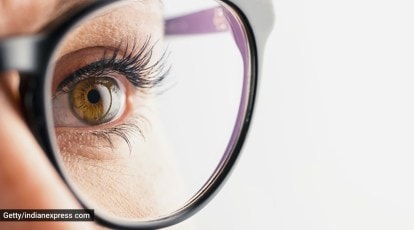Andalusia Ophthalmologist: Devoted Vision Look After Every Patient
Andalusia Ophthalmologist: Devoted Vision Look After Every Patient
Blog Article
Is Refractive Surgical Treatment Right for You? Variables to Think About for Better Eyecare
In the realm of eye treatment, the choice to undergo refractive surgical treatment is a significant one that demands thoughtful consideration. From the intricacies of one's eye wellness to the ins and outs of day-to-day behaviors and personal assumptions, each element holds significance in the more comprehensive landscape of refractive surgical procedure candidateship.
Eye Wellness Assessment
When thinking about refractive surgical procedure, a detailed eye health evaluation is essential to evaluate the suitability of the treatment for each and every individual. andalusia pediatrics. This analysis involves a collection of tests and examinations conducted by an eye treatment professional to figure out the total health of the eyes, the visibility of any kind of underlying conditions, and the stability of the refractive error
Throughout the examination, numerous elements are considered, such as the patient's medical background, existing eye prescription, corneal density, student size, and tear movie top quality. These assessments assist to recognize any type of contraindications to refractive surgical procedure, such as corneal problems, cataracts, or neglected eye infections. Additionally, the evaluation aids to manage person expectations pertaining to the possible results of the surgical treatment based upon their unique eye qualities.
Inevitably, the eye wellness analysis is important in ensuring the security and effectiveness of refractive surgical procedure, as it supplies beneficial insights right into the person's eye wellness status and assists determine the most ideal therapy options for accomplishing optimal aesthetic end results. (eye center andalusia)
Way Of Life Analysis
A comprehensive way of life analysis is essential in identifying the suitability of refractive surgical treatment for a person's visual adjustment needs. Way of living variables such as profession, pastimes, and everyday activities play an essential role in the decision-making process relating to refractive surgical treatment. Individuals with careers that include a high level of physical activity or exposure to environmental aspects may have various visual requirements compared to those with inactive desk tasks. Comprehending exactly how an individual's lifestyle may impact their vision post-surgery is crucial for handling assumptions and making sure ideal end results.
In addition, way of living behaviors such as sporting activities participation, outside activities, or perhaps skincare regimens can influence the healing procedure and overall success of refractive surgery. Individuals who involve in get in touch with sports might need to take added safety measures to secure their eyes during the recovery duration. Additionally, people with comprehensive sunlight exposure may need extra post-operative care to stop issues. By carrying out a thorough way of life assessment, eye treatment specialists can customize their suggestions and treatment plans to fulfill the one-of-a-kind demands of each individual, eventually resulting in boosted aesthetic results and fulfillment.
Expectation Alignment

Setting practical assumptions involves extensive pre-operative conversations between the individual and the ophthalmologist. The doctor ought to transparently connect the prospective risks, advantages, and constraints of the procedure look here (cardiologist andalusia). People require to comprehend that while many individuals attain 20/20 vision or much better following refractive surgery, some may still require glasses for specific activities like analysis or driving at evening. Handling these expectations helps stop disappointment and discontentment post-surgery, bring about a much more positive total experience for the client.
Risk Analysis

Factors that might increase the threat of complications include age, specific medical problems like autoimmune illness, unstable vision prescription, thin corneas, and impractical individual expectations. Additionally, choosing a experienced and skilled cosmetic surgeon, following pre and post-operative care directions faithfully, and revealing any relevant case history can aid reduce risks.
To lessen the possibility of difficulties, eye doctors conduct detailed pre-operative right here evaluations to recognize any type of contraindications to surgical procedure. They likewise review the prospective threats and benefits with patients during the appointment process. By engaging in open communication and shared decision-making, both the ophthalmologist and the client can function together to establish if refractive surgical treatment is the best option based on specific threat accounts and wanted end results.
Assessment Significance
Thinking about the essential role of notified decision-making in assessing dangers and prospective issues in refractive surgical procedure, the consultation process holds substantial relevance in directing individuals in the direction of optimal results. During the consultation, the eye doctor examines the individual's eye health, refractive mistakes, and total viability for surgery. This initial analysis is crucial in figuring out the most suitable procedure for each and every individual, taking into consideration factors such as corneal thickness, student size, and existing eye conditions.
Moreover, the examination functions as a possibility for patients to review their assumptions, problems, and any kind of questions they might have relating to the surgical procedure. Clear interaction in between the specialist and the patient is vital to make sure sensible expectations and an extensive understanding of the prospective dangers and advantages included.
Additionally, the examination enables the surgeon to describe the different surgical options offered, their particular outcomes, and the post-operative treatment needed. This thorough conversation equips patients to make educated decisions concerning their eye care, bring about better satisfaction and outcomes post-surgery.
Conclusion
To conclude, people thinking about refractive surgery must undertake an extensive eye wellness examination, examine their way of life routines, align their assumptions with possible end results, assess the associated risks, and prioritize consultations with eye treatment professionals. These elements play an essential role in identifying the viability of refractive surgery for every person, making sure optimal end results and complete satisfaction with the procedure.
Patients taking into consideration refractive surgery often have high expectations pertaining to the end results, expecting perfect vision without the requirement for glasses or contact lenses. While refractive this content surgical procedure can considerably enhance vision and reduce dependency on aesthetic help, it is important for clients to recognize that outcomes may differ based on specific factors such as the level of refractive mistake, corneal thickness, and total eye health and wellness.
By engaging in open communication and shared decision-making, both the ophthalmologist and the person can function together to establish if refractive surgery is the appropriate choice based on specific risk profiles and desired results.
Taking into consideration the crucial function of educated decision-making in evaluating risks and possible difficulties in refractive surgery, the examination procedure holds significant importance in guiding people in the direction of optimum outcomes. During the appointment, the ophthalmologist evaluates the individual's eye health, refractive mistakes, and total viability for surgical procedure.
Report this page